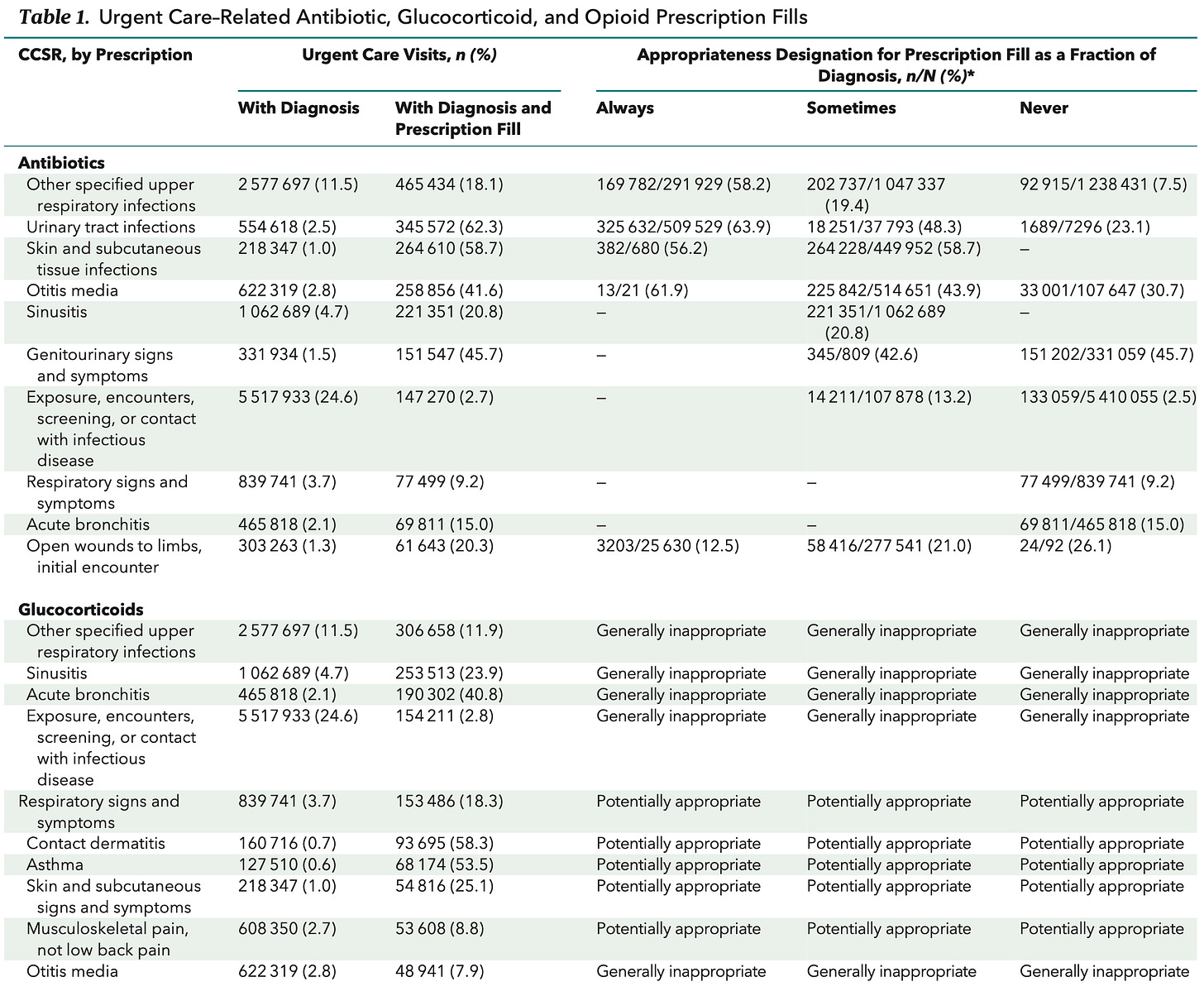Urgent Care Is Full Of Inappropriateness
Though, it's hard to say much about these data in isolation.
Urgent care practices in the U.S. have a reputation for – let’s say – customer satisfaction. Customer satisfaction usually means “getting something”, and, in urgent care where patients are not typically seriously unwell, the “getting something” is frequently inappropriate.
This research letter in Annals of Internal Medicine revisits this reputation of inappropriate prescribing set by precedent in the literature and updates it for the modern age. Have we improved? Did we do better in 2018 to 2022?
Not clearly, no:
The table is a bit obtuse, but the basic premise is that many presentations to urgent care are receiving antibiotics and/or glucocorticoids. A few of the specified coded disorders are certainly appropriate for antibiotics in a preponderance of situations, but others are likely to have a substantial mix of inappropriate prescribing. The glucocorticoid data is likely more damning, as systemic steroids are generally inappropriate in all situations for certain disorders – sinusitis and bronchitis – yet are seeing them prescribed in 20-40% of encounters.
The authors also do an analysis of opioid prescribing, and the fraction of qualifying diagnoses inappropriately receiving opiates was lower, thankfully.
Urgent care is hardly the only health care setting needing improvement, but it is reasonable to continue to suggest it still has the furthest to go.

